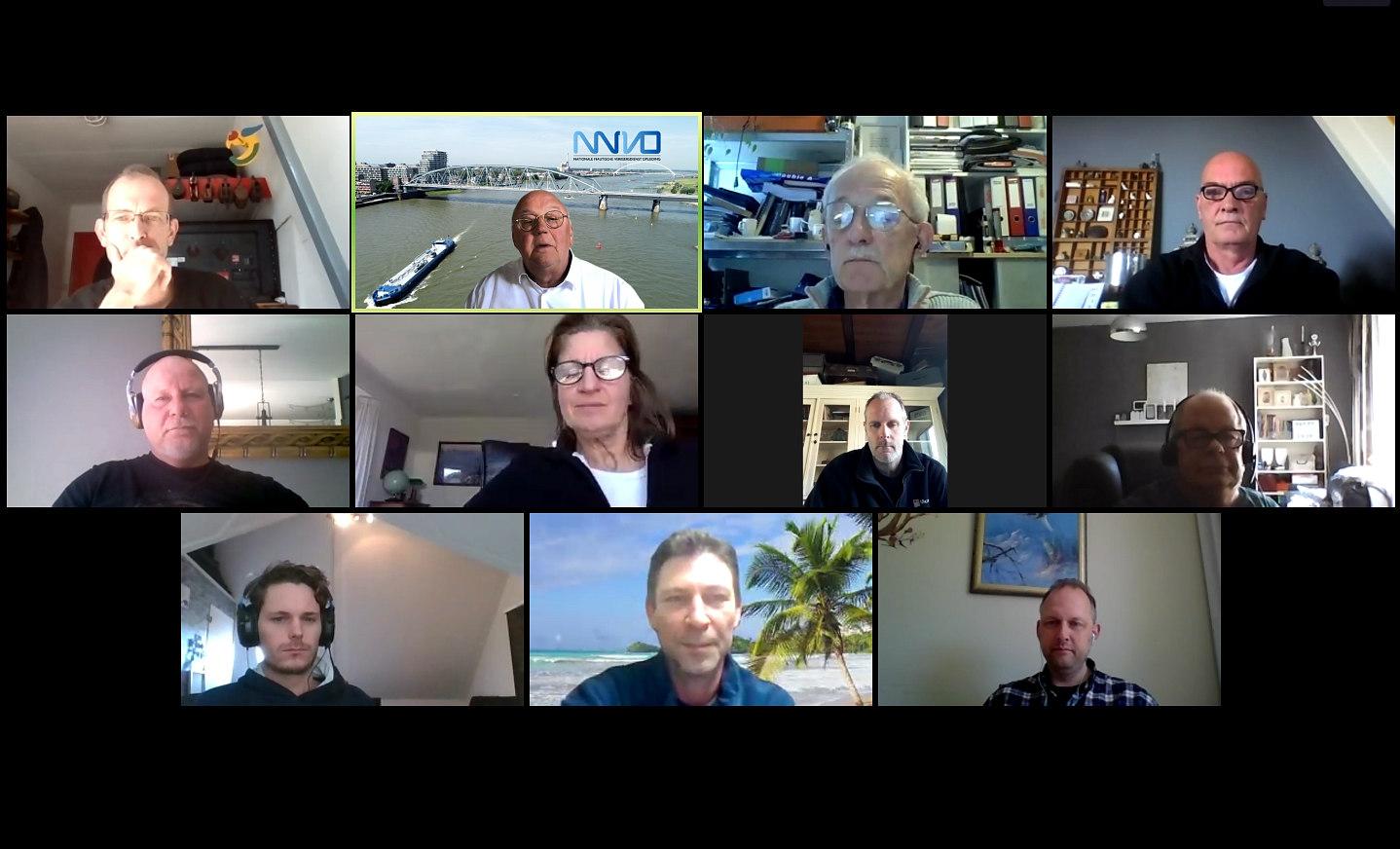An important milestone at the NNVO Nautical Curricular Strands: almost all modules can be followed online. Due to the coronavirus crisis, NNVO started digitising the lessons already in March. The modules were subsequently increasingly provided online via programmes such as Zoom and Microsoft Teams. Meanwhile all possible courses have been digitised. The response? It’s highly positive.
It will come as no surprise that the more practical subjects such as Personal Resilience are still taught in small groups in a classroom. Also the courses for special investigating officers and the subjects that require a simulator, e.g. the radar diploma, are still taught via traditional teaching. But all other modules of the Nautical Curricular Strands are now provided online and thus corona-proof.
Acceleration
Coordinator Korstiaan Huisman proudly states: “The first modules that we switched from classical to online were a challenge. But after that it was getting easier, because we had already gained experience. The dangerous goods course was somewhat more complicated to adapt, as print books are used here to find information. We solved this problem by providing the electronic version of the ADN handbook. We had this possibility already, but now we had to accelerate the speed of the process.”
Team effort
Looking back, Korstiaan concludes that the transition from classical to digital was completed without major obstacles. “And that is also due to the strong commitment of our educationalists and trainers. For the secretariat it was a challenge to adjust the schedule at short notice, to send adjusted invitations and meanwhile to answer the many phone calls from trainees. But we can look back on that with positive feelings. In conclusion, a very good team effort!”
The same quality
Although teaching online may have been somewhat unfamiliar at the beginning, the trainers are optimistic now about this other way of teaching. Trainer Marion Querido: “Online teaching has been a very positive experience and I was able to provide almost the same quality as when teaching in class. The breakout rooms and the whiteboard in Zoom have appeared to be important tools. I could also mainly stick to the existing lesson plans. Furthermore, the oral exams are certainly doable on screen.”
Trainer Jack Jonker: “Online teaching has appeared an excellent way to continue educating in these times of corona virus. Even the real digital illiterates were quickly able to participate. No travel time is a great advantage, which made everybody show up for the online lessons bright and brisk. It also gave the trainees more time to prepare for the lessons. We are thinking for the future to keep teaching part of the lessons online. The main drawback of online teaching is the lack of human contact; the chat in the coffee corner or at lunch. In the past this often led to positive peer relationships and even long-lasting friendships. I assume that we will be able to meet physically again in the near future.”
Supervision
According to Korstiaan only at the written examinations there is some room for improvement for NNVO. “During an exam there should be supervision. The trainer obviously supervises through the camera, but this supervision cannot be 100%. We are still discussing this. At the same time, I can tell you that so far, no irregularity has occurred in any way. That does the trainees and their honesty credit, and therefore they make it possible to keep examining online in the future.”







